Laicizing Clergy
The church teaches that clergy “are clergy forever”, even though they may have left willingly or fallen from grace. This is fact, plain and simple. Yet there are many organizations that twist biblical text and their own canons to the limits.
The church has, since it’s ancient roots, stated clearly that the sacraments are absolute, and cannot be taken away. The two that come to mind immediately are baptism and ordination/consecration. That sets the stage to continue into the subject. We may list various Canon Laws as we move through the narrative.
The Catechism states in no uncertain terms that Holy Orders leave an “indelible mark of the spirit’ on the recipient. (c.1582). This matches Ps. 110.4, “You are a priest forever”. The Canon is not simple dogma, it is fact as it is based on a biblical ‘absolute’.
Hence, like Baptism, Holy Orders cannot by the power of man be erased.
Likewise, c.209 bluntly states that once an individual receives ordination, that ordination cannot be made invalid. Human clergy CANNOT override the blessing of the Trinity and the descending of the spirit.
None the less, clergy may be released from duties by whatever church follows such canons. This does NOT mean they are no longer a priest. It is a BUSINESS agreement that this individual may no longer practice as a priest in that particular organization. This practice, called laicization, is a practice that is only valid for the church enacting that practice on a priest within their organization. It has little or no meaning within the operations of independent autonomous organizations outside the church in question.
When a priest is laicized, either by request or has fallen from grace, he is still a priest, but from the ‘business’ perspective of that particular church, is no longer allowed to exercise the power of the orders. c.292
Yet, this individual is still clergy, and if they were to hold Mass outside of their organization, it is still considered a valid Mass. The act may be considered illicit, but keep in mind there is a massive canon law difference between illicit and invalid. That information is not discussed here.
Can a laicized priest, who wishes to leave voluntarily, re-enter the clergy of the original organization? Yes. It is difficult, as any church would not wish priests ‘not making up their minds’, but it is possible. If an individual priest wishes to return to active status in that given church, that individual should not be ordained again, as they are already a priest.
There is curious wording in the canons of many churches. c.976 is no exception. It clearly states that ANY priest, even one who may no longer operate under that particular organization, may not only hear confession but grant absolution in times of great need. So if a laicized priest came upon a dying victim in a car accident, that priest is REQUIRED to hear confession and provide absolution.
Hence, a priest is always a priest.
How about other autonomous organizations. Those organizations do not, real or imagined, have to accept the laicization of any other church. As far as they are concerned that priest is still a priest and may be incardinated into their church.
* Now of course if the laicization was for sex abuse or any serious felony or misdemeanor, an organization should not entertain an affiliation with that priest That is only logical.
None the less, if a priest of one organization was laicized for an ambiguous canon infraction or a request to ‘change organizations’, they may be incardinated into any other organization with little or no fanfare.
Summary;
1. Is a priest a priest forever. Yes.
2. Can a priest be removed from duties of a specific organization. Yes.
3. If a priest is laicized, is he still a priest? Yes. (see number 1)
4. Can a laicized priest be incardinated and accepted in another organization. Yes.
5. Can any organization claim that they have removed a priests ordination. No. Human clergy CANNOT override the blessing of the Trinity and the descending of the spirit.
6. Do the Canons of laiciztion of one organization effect the Canons of another independent organization? No
7. Can a laicized priest practice outside the original church that laicized that priest, without joining another church? Yes. It may be considered illicit, but is fully valid.
As per eleven (11) Canon rules of Pope Gregory IX and the eighty-eight (88) Canon rules of Pope Boniface VIII, the concept of any illicit act within the church is explained in detail;
These rules, according to Canon 20, can supply the defect of the rule in a particular case, as in the case we presently find ourselves. Consequently, the fourth rule of Gregory IX expressly states: Propter necessitatem, illicitum efficitur licitum — “Necessity makes licit what is illicit.”
Rule 88 of Boniface VIII also expressly states Certum est quod is committit in legem qui legem verbum complectens contra legis nititur — “It is certain that one sins against the rule who adheres to the letter and leaves aside the spirit.” Therefore, it is unjust to impute to the legislator a desire to greatly harm the Church during a need to SERVE God and the faithful, forbidding the ordination of bishops and priests and the administering of the sacraments to the faithful who ask for them.
At the very least, especially in time of ‘great trial and tribulation’, traditional acts may be required to be put aside for the benefit of the faithful and the church. This includes but not limited to; a single bishop for consecration, foregoing the laying on of hands, using virtual technology to maintain church operations for the faithful and stability of the church itself and applying special actions for all sacraments in general. The church simply cannot ‘stop’.
At the very least, the practice of sub conditone comes into play for these non traditional actions. This is fully supported by Roman Catholic Canons 953 and 2370. This ‘exception’ manifests itself with the Anglican Ordinates with the Roman Catholic Church.
Out of necessity to create the Anglican Ordinates, the Roman Church followed the precept Propter necessitatem, illicitum efficitur licitum - “Necessity makes licit what is illicit.”
Hence, a laicized priest, one who has been laicized for non criminal acts, may fully operate as a priest whereas they are a priest forever. The actions of man can never erase the mark of the Holy Spirit at ordination or consecration.
And by the 99 rules set down that have NEVER been overturned or modified, any church may make licit what is considered illicit in time of need.
Final analysis:
It is important here to keep in mind a critical distinction: once a man is ordained a priest, he will always have the ability to offer the Holy Sacrifice of the Mass, and nobody on earth can take that ability away from him. As we’ve noticed before, canon law follows theology, so it is no surprise that the code (c. 290) echoes the Catechism of the Catholic Church (1581-1582) in asserting that priestly ordination which is validly conferred never becomes invalid. “You are a priest forever, according to the order of Melchisedech.”


